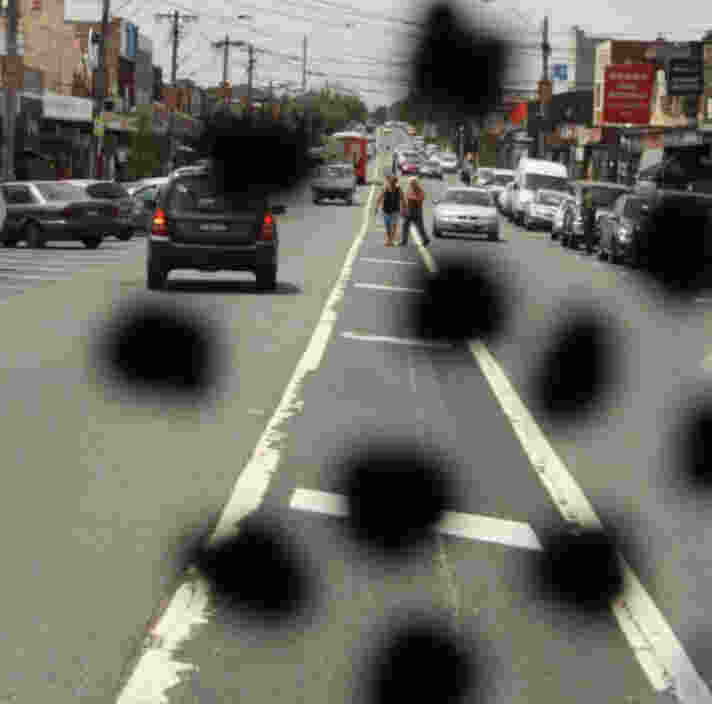On this page:
Glaucoma
Eye diseases affecting the optic nerve.
Glaucoma refers to a group of eye conditions where the optic nerve connecting the eye to the brain is damaged, usually due to high eye pressure. It usually presents a gradual reduction of peripheral vision and can result in tunnel vision or total blindness.
(Right image simulates the Glaucoma affects loss of peripheral vision. An image of a Labrador where the right ear and part of its face are clearly visible. The rest of the image is obscured.)

Macular degeneration
A common cause of central vision loss.
Macular degeneration is an eye disease, which causes loss in the centre of the field of vision. Our macula is used for central and fine detailed vision. There are two kinds of macular degeneration; in dry macular degeneration, the macula deteriorates gradually over time, while in in wet macular degeneration, leaky blood vessels grow under the retina. Blurred and distorted vision are common symptoms.
(Left image simulates Macular Degeneration which affects loss of central vision. The image of a Labrador with its face obscured and the outline of its head is visible.)

Cataracts
Clouding of the eye's lens.
Cataracts are caused by the clouding of the normally clear lens of the eye, resulting in blurry, hazy vision. Some people describe it like looking through a cloudy window. Cues can include reporting sensitivity to light, difficulty seeing clearly and discomfort when light is turned on or curtains are opened.
(Right image simulates how Cataracts affect overall blurring of vision. The image shows a hazy outline of a Labrador.)

Diabetic retinopathy
Damage to blood vessels caused by diabetes.
Diabetic retinopathy is caused by damage to the blood vessels in the tissue at the back of the eye (retina) due to diabetes. Early symptoms include floaters, blurriness, dark areas of vision and difficulty perceiving colours. The damage can ultimately cause blindness.
(Left image simulates how Diabetic Retinopathy affects vision, Image is distorted by many blind spots making it difficult to decipher the scene.)

Retinitis Pigmentosa
Progressive diseases damaging retina cells.
Retinitis Pigmentosa is a group of rare, genetic disorders that cause the breakdown and loss of cells in the retina. Symptoms will include difficulty seeing at night and loss in peripheral vision.
(Right image simulates how Retinitis Pigmentosa affects vision. The Labrador image is restricted to a circle in the centre, with the remaining scene blurred.)

Neurological Vision Loss
Vision loss from damage or injury to the brain.
Neurological Vision Loss – Field Loss: Following an acquired brain injury, damage to the areas of the brain responsible with sight and/or visual processing can result in vision loss. There are various levels of visual field loss that can change your vision in different ways. It usually depends on what type of brain injury you have experienced, and how this has damaged your brain or visual pathway.

Ready to continue?
Seems like you have filled this form earlier. Let’s pick up where you left off.

